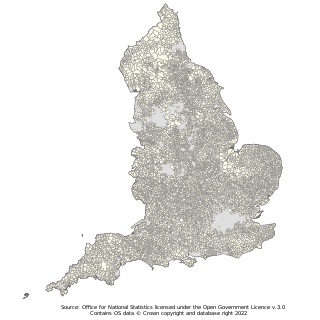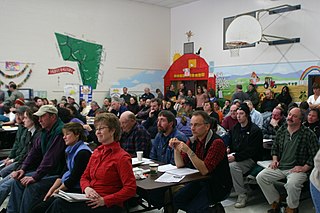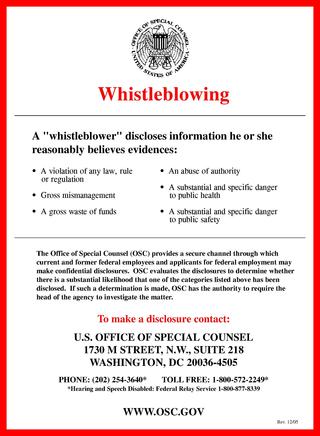Related Research Articles
Freedom of information laws allow access by the general public to data held by national governments and, where applicable, by state and local governments. The emergence of freedom of information legislation was a response to increasing dissatisfaction with the secrecy surrounding government policy development and decision making. In recent years Access to Information Act has also been used. They establish a "right-to-know" legal process by which requests may be made for government-held information, to be received freely or at minimal cost, barring standard exceptions. Also variously referred to as open records, or sunshine laws, governments are typically bound by a duty to publish and promote openness. In many countries there are constitutional guarantees for the right of access to information, but these are usually unused if specific support legislation does not exist. Additionally, the United Nations Sustainable Development Goal 16 has a target to ensure public access to information and the protection of fundamental freedoms as a means to ensure accountable, inclusive and just institutions.
Electronic Privacy Information Center (EPIC) is an independent nonprofit research center established in 1994 to protect privacy, freedom of expression, and democratic values in the information age. EPIC is based in Washington, D.C. EPIC's mission is to secure the fundamental right to privacy in the digital age for all people through advocacy, research, and litigation.

The Standing Committee of the National People's Congress (NPCSC) is the permanent body of the National People's Congress (NPC), the national legislature of China. Although the parent NPC officially has superiority over the Standing Committee, and certain authorities are not delegated, the Standing Committee is generally viewed to have more de facto power, as the NPC convenes only once a year for two weeks, leaving its Standing Committee the only body that regularly drafts and approves decisions and laws.

Parish councils are civil local authorities found in England which are the lowest tier of local government. They are elected corporate bodies, with variable tax raising powers, and they carry out beneficial public activities in geographical areas known as civil parishes. There are about 10,480 parish and town councils in England. Parish councils may be known by different styles, they may resolve to call themselves a town council, village council, community council, neighbourhood council, or if the parish has city status, it may call itself a city council. However their powers and duties are the same whatever name they carry.
Participatory democracy, participant democracy or participative democracy is a form of government in which citizens participate individually and directly in political decisions and policies that affect their lives, rather than through elected representatives. Elements of direct and representative democracy are combined in this model.

The Government in the Sunshine Act is a U.S. law passed in 1976 that affects the operations of the federal government, Congress, federal commissions, and other legally constituted federal bodies. It is one of a number of Freedom of Information Acts, intended to create greater transparency in government.

Town meeting is a form of local government in which most or all of the members of a community are eligible to legislate policy and budgets for local government. It is a town- or city-level meeting in which decisions are made, in contrast with town hall meetings held by state and national politicians to answer questions from their constituents, which have no decision-making power.

The Los Angeles County Board of Supervisors (LACBOS) is the five-member governing body of Los Angeles County, California, United States.

Proposition 59 was an amendment of the Constitution of California that introduced freedom of information or "sunshine" provisions. It was proposed by the California Legislature and overwhelmingly approved by the voters in an initiative held as part of the November 2004 elections.
The Ralph M. Brown Act is a California law that guarantees the public's right to attend and participate in meetings of local legislative bodies. Located at California Government Code 54950 et seq., it is an act of the California State Legislature, authored by Assemblymember Ralph M. Brown and passed in 1953.
This is a brief description of the lawmaking procedure in India.

The Support Our Scouts Act of 2005 was passed as part of the Department of Defense Appropriations Act, 2006 to prevent Local, State and Federal agencies from reducing their support for the Boy Scouts of America. The bill was passed in the wake of a number of controversies involving the Boy Scouts of America, such as their exclusion of gays and atheists, and subsequent attempts to limit government support of the organization.

The National initiative is a proposed process to petition an initiative at the federal level in the United States via a national vote on the national ballot measure. While some U.S. states allow direct or indirect initiatives, there are currently no national initiatives in the United States.

The Official Information Act 1982 (OIA) is an Act of the New Zealand Parliament which creates a public right to access information held by government bodies. It is New Zealand's primary freedom of information law and has become an important part of New Zealand's constitutional framework.
The Council of National Institutes of Technology, Science Education and Research (NITSER) commonly known as the Council of NITs, is the supreme governing body of India's National Institutes of Technology (NITs), Indian Institute of Engineering Science and Technology (IIESTS) and Indian Institutes of Science Education and Research (IISERs) as per provisions under Section 30 of the National Institutes of Technology, Science Education and Research Act, 2007. The Council of NITSER consists of chairmen, directors of all NITs, IIEST and IISERs along with the government nominees from various sectors with the Minister of Education as the Chairman of the Council. The Council of NITSER is the highest decision making body in the NIT, IIEST and IISER fraternities and is answerable only to the Government of India. The Council of NITSER is expected to meet regularly and take steps conducive for maximum growth of the NITs, IIEST and IISERs as whole in the near future.

The California Public Records Act was a law passed by the California State Legislature and signed by governor Ronald Reagan in 1968 requiring inspection or disclosure of governmental records to the public upon request, unless exempted by law.

A whistleblower is a person who exposes any kind of information or activity that is deemed illegal, unethical, or not correct within an organization that is either private or public. The Whistleblower Protection Act was made into federal law in the United States in 1989.
The copyright status of works produced by the governments of states, territories, and municipalities in the United States varies. Copyright law is federal in the United States. Federal law expressly denies U.S. copyright protection to two types of government works: works of the U.S. federal government itself, and all edicts of any government regardless of level or whether or not foreign. Other than addressing these "edicts of government", U.S. federal law does not address copyrights of U.S. state and local government.
Access to public information and freedom of information (FOI) refer to the right of access to information held by public bodies also known as "right to know". Access to public information is considered of fundamental importance for the effective functioning of democratic systems, as it enhances governments' and public officials' accountability, boosting people participation and allowing their informed participation into public life. The fundamental premise of the right of access to public information is that the information held by governmental institutions is in principle public and may be concealed only on the basis of legitimate reasons which should be detailed in the law.

The Missouri Sunshine Law is the common name for Chapter 610 of the Revised Statutes of Missouri, the primary law regarding freedom of the public to access information from any public or quasi-public governmental body in the U.S. state of Missouri.
References
- Constitution of California, Article 1, §3(b)
- AcademicSenate.cc.ca.us - 'Bagley-Keene Open Meeting Act: California Codes Government Code Section 11120-11132', Academic Senate for California Community Colleges